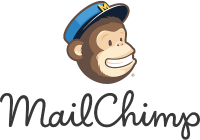Chatfuel is a leading chatbot platform that allows businesses and individuals to create AI-powered bots for Facebook Messenger and other messaging platforms without any coding knowledge. Since its inception in 2015, Chatfuel has become a go-to solution for brands looking to enhance customer engagement, automate communication, and streamline various processes like customer support, marketing, and sales.
Chatfuel empowers users by providing a drag-and-drop interface that simplifies the process of chatbot development. By making it easy for businesses to build intelligent, rule-based bots or more advanced conversational AI, Chatfuel facilitates interactions with customers in real time, enabling companies to address queries, offer product recommendations, and even process payments through the chat interface.
Key Applications of Chatfuel
-
Customer Support: One of the most popular use cases for Chatfuel is automating customer support. Chatbots can handle frequently asked questions, troubleshoot common problems, and route more complex issues to human agents. This helps businesses offer 24/7 support while reducing operational costs.
-
Lead Generation: Chatfuel chatbots can collect leads by prompting users for information such as email addresses, phone numbers, and preferences. The platform's integrations with CRM tools allow seamless data transfer, making it easy for sales teams to follow up on prospects.
-
Sales Automation: Businesses can use Chatfuel to create bots that recommend products based on user preferences, guide them through the purchasing process, and even accept payments. This makes the buying experience smoother and more personalized, which can increase conversion rates.
-
Marketing Campaigns: Chatfuel enables marketers to create interactive campaigns that engage customers through messaging. Chatbots can send personalized messages, special offers, reminders, and surveys to users, helping businesses maintain an ongoing connection with their audience.
-
Content Distribution: Many organizations use Chatfuel to distribute content such as blog updates, news, or product releases. By sending notifications directly to users' Messenger inboxes, businesses can ensure higher engagement rates than traditional email marketing.
Main Features of Chatfuel
-
Drag-and-Drop Interface: Chatfuel's intuitive interface allows users to create chatbots without the need for any coding or programming skills. The drag-and-drop editor provides an easy way to set up and configure various blocks, actions, and responses.
-
AI-Powered Natural Language Processing (NLP): Chatfuel bots can understand and respond to user queries through NLP, enabling more human-like conversations. Users can train their bots to recognize specific keywords, phrases, and intents, enhancing their ability to handle complex interactions.
-
Automated Sequences: Businesses can create automated message sequences that guide users through specific journeys, whether it’s nurturing a lead, delivering content, or completing a sale. These sequences can be triggered based on user actions or predefined schedules.
-
Audience Segmentation: Chatfuel allows businesses to segment their audience based on different criteria such as location, behavior, or previous interactions. This feature helps businesses deliver more personalized messages to users, improving engagement and conversions.
-
Integrations with Popular Tools: Chatfuel integrates with many third-party services, including CRM systems like Salesforce, Google Sheets, and email marketing platforms. This allows for seamless data management and workflow automation, making it easier to sync chatbot data with broader business processes.
-
Broadcasting: With Chatfuel, businesses can send targeted broadcasts to specific user segments. These broadcasts can be used for announcements, promotions, or important updates, ensuring users stay informed.
-
Analytics and Insights: The platform provides detailed analytics on user interactions, message delivery, and chatbot performance. This helps businesses refine their bot’s behavior and make data-driven decisions to improve user experience.
-
Multi-Language Support: Chatfuel supports multilingual bots, allowing businesses to cater to diverse audiences from different regions, ensuring conversations remain relevant and accessible in multiple languages.
-
Lead Capture and Nurturing: Chatfuel’s bots are equipped to capture leads directly from messaging platforms, storing the information for future use or routing it to CRM systems for immediate follow-up. This streamlines lead nurturing and enhances sales potential.
-
Personalization: Chatfuel enables bots to use user-specific data to personalize interactions, whether through addressing customers by name or offering product recommendations based on their preferences.
-
E-Commerce Integration: For businesses in the e-commerce space, Chatfuel integrates with platforms like Shopify, allowing bots to facilitate the entire purchasing process, including product selection, order placement, and tracking.
-
Omnichannel Support: While initially built for Facebook Messenger, Chatfuel has expanded to support other channels such as Instagram, making it a versatile tool for businesses that want to engage customers on multiple platforms.
Conclusion
Chatfuel is a robust and flexible chatbot platform that caters to businesses of all sizes. With its no-code approach, advanced AI features, and integrations with popular business tools, Chatfuel enables organizations to automate various aspects of their operations, improve customer interactions, and boost overall efficiency. From customer support to sales automation and content distribution, Chatfuel helps businesses leverage the power of AI-driven chatbots to grow and scale.
Videos






